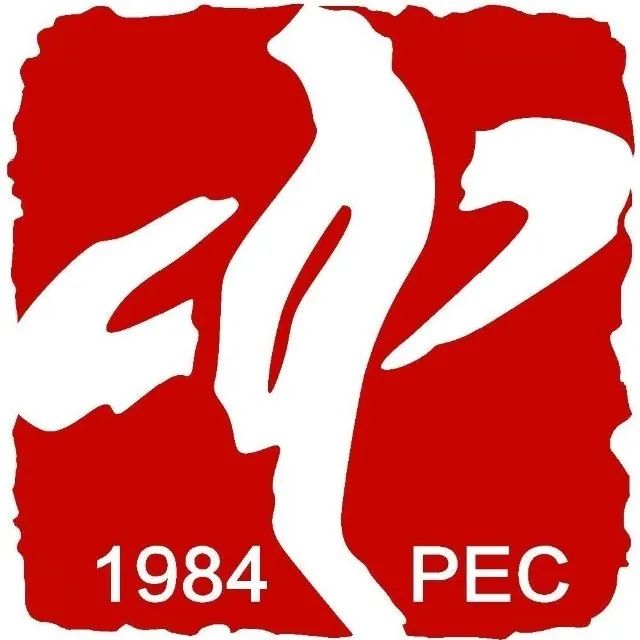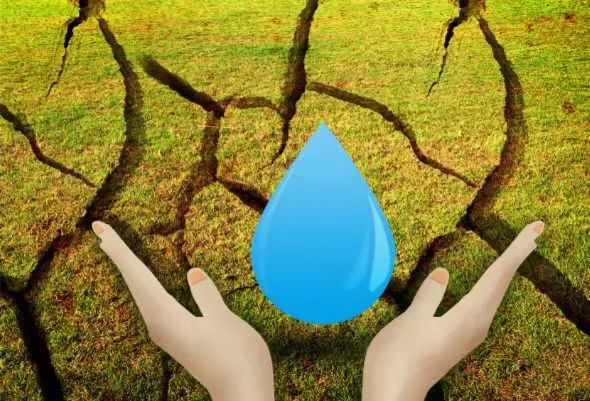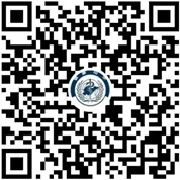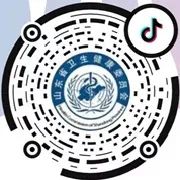
Health Shandong Promotion
High in quality, deep in content, warm in tone
Follow us
Some friends tend to feel hot, with warm hands and feet throughout the year. Especially at night, they may sweat while sleeping, have a flushed face, and often feel thirsty, preferring cold drinks. Their personality may also be somewhat irritable and impulsive. Many might think this indicates a strong vitality, but in fact, such individuals may have a Yin Deficiency (Yin Xu) constitution.
What is Yin Deficiency? What are the manifestations of a Yin Deficiency constitution? What diseases are easily induced by it? Traditional Chinese Medicine (TCM) emphasizes “nourishing Yin in autumn and winter”; how can we seize the “golden autumn” to nourish our Yin energy? Today, we will explore the health preservation methods for those with a Yin Deficiency constitution.
What is Yin Deficiency?01
If Yang Deficiency is likened to a lack of sunlight and warmth in the body, then Yin Deficiency is akin to a lack of water nourishment. Yin Deficiency refers to the deficiency of Yin fluids, which encompass all nourishing fluids in the body, including blood, sweat, saliva, etc. Yin fluids are like the “spring water” flowing within us, capable of moistening and nourishing the organs, essential for sustaining life. When Yin fluids are deficient, the body resembles land without irrigation, leading to dryness.
There is a saying in TCM: “Yin Deficiency generates internal heat.” If the Yin fluids in the body are insufficient and unable to restrain Yang energy, it results in an excess of Yang energy, producing more heat, leading to symptoms of internal heat disturbance, known in TCM as “Yin Deficiency with Yang Excess (Yin Xu Huo Wang)”.

What are the manifestations of a Yin Deficiency constitution?02
A Yin Deficiency constitution is characterized by a deficiency of Yin fluids such as body fluids and blood, primarily marked by internal heat. The typical features are “dryness” and “heat”.
Dryness: Water belongs to Yin, which governs moisture. When Yin fluids are insufficient, the nourishing function of the body diminishes, leading to symptoms of dryness. For example: dry skin, dry eyes, dry nasal passages, dry mouth and throat, thirst for cold drinks, constipation, etc. Observing the tongue, one may find it red with little coating, dry, and even cracked. Additionally, individuals with this constitution tend to be irritable, extroverted, and easily agitated.
Heat: “Yin Deficiency leads to heat”; when Yin is deficient, it cannot restrain Yang heat, resulting in a series of symptoms of internal heat disturbance. This manifests as heat in the five palms (hands and feet), tidal fever, where the palms and soles feel hot, and there is a sensation of heat in the chest, often occurring rhythmically in the afternoon or evening, accompanied by flushed cheeks and night sweats. These individuals usually tolerate cold but not heat, preferring winter over summer.
What diseases are easily induced by a Yin Deficiency constitution?03
Yin Deficiency can damage the Yin of the organs, leading to various discomforts. Individuals with Lung Yin Deficiency may experience cough, Heart Yin Deficiency may lead to insomnia and palpitations, Liver Yin Deficiency may cause dizziness and dry eyes, while Kidney Yin Deficiency may present as soreness in the lower back and knees, tinnitus, etc. If a Yin Deficiency constitution is not properly managed over time, it can easily lead to conditions such as Sjögren’s syndrome, dry eye syndrome, chronic insomnia, and habitual constipation.
How does a Yin Deficiency constitution form?04
The causes of Yin Deficiency vary among individuals, including both congenital deficiencies and acquired factors. Acquired factors mainly refer to unhealthy lifestyles, such as overeating, a preference for spicy foods, excessive fatigue, staying up late, and high levels of mental stress. Long-term neglect of self-care can easily lead to Yin Deficiency.
How to regulate a Yin Deficiency constitution?05
For individuals with a Yin Deficiency constitution, the principle of regulation should be “nourishing Yin fluids”. It is essential to protect the body’s Yin fluids and promote their restoration and replenishment.
1. Dietary Regulation – Light Diet Avoiding Spicy Foods
In terms of diet, it is important to replenish fluids and maintain a light diet, consuming plenty of fresh fruits and vegetables. Avoid spicy and warming foods such as chili, leeks, and lamb to prevent damaging Yin and igniting fire. Additionally, it is advisable to quit smoking and limit alcohol to prevent internal heat generation. Regularly consume foods that nourish Kidney Yin and are sweet and cooling, such as duck meat, white fungus, bird’s nest, sesame, lily, milk, lotus root, loofah, yam, sugarcane, water chestnut, mulberries, and honey. When cooking, it is recommended to steam, stew, or boil to preserve the moisture and nutrients of the ingredients, and to minimize frying or roasting, which can increase the dryness and heat of the food.

TCM believes in “nourishing Yin in autumn and winter”. Many people associate autumn and winter health preservation with consuming warming foods like ginseng, deer antler, chicken soup, and lamb soup. However, this approach is not entirely reasonable. While supplementation is important, it should not be indiscriminate; one must distinguish between deficiencies of Qi, blood, Yin, and Yang, and adjust according to the diagnosis. For those with a Yin Deficiency constitution, autumn is a good time to choose ingredients like lily, white fungus, yam, and lotus root to make nourishing soups and porridge that replenish Yin energy. Here are two nourishing recipes:
Honey Steamed White Lily with White Fungus: Use 120g of white lily, 30g of white fungus, and 30g of honey. After soaking the white lily and white fungus, mix them with honey and steam until cooked.
Autumn Pear Bird’s Nest: Use 2 autumn white pears, cut off the stem end, and scoop out the core. Place 5g of bird’s nest and 10g of rock candy inside the pears, cover with the stem, secure with a bamboo stick, and steam until cooked. This is particularly suitable for those with a Yin Deficiency leaning towards Lung Yin Deficiency.
2. Lifestyle – Regular Sleep Schedule, Avoid Staying Up Late
Avoid stressful work, staying up late, and high-temperature work that exacerbate Yin Deficiency. It is especially important to avoid staying up late. Nighttime is associated with Yin, and sleep is the best way to nourish the Yin of the five organs. Staying up late depletes Yin fluids. The Huangdi Neijing states: “In autumn, sleep early and rise early, aligning with the rooster’s crow, to ensure peace of mind.” In autumn, it is crucial to maintain an early sleep and wake schedule to ensure adequate rest and preserve Yin energy.
3. Moderate Exercise – Exercise in Moderation
For those with excessive internal heat due to Yin Deficiency, vigorous exercise is not suitable. Excessive movement generates Yang, leading to fluid loss through sweating, which can further deplete Yin fluids. Therefore, avoid high-intensity or prolonged exercise, and refrain from exercising in extreme heat. Control sweating during workouts and replenish fluids in a timely manner. Opt for moderate-intensity traditional fitness activities such as Baduanjin (Eight Pieces of Brocade), Taijiquan (Tai Chi), and Qigong.
4. Mental Regulation – Calm the Mind and Avoid Impulsiveness
Individuals with a Yin Deficiency constitution often exhibit irritability, which can exacerbate internal heat and further aggravate Yin Deficiency. As the saying goes, “A calm heart naturally cools.” Calmness nourishes Yin, and mental tranquility can preserve Yin energy. Therefore, it is essential to cultivate a calm and composed demeanor, enhance self-cultivation, and overcome irritability. Listening to soothing music, engaging in hobbies that require patience such as fishing or chess, can help soothe the mind. In Chinese culture, there is a tradition of climbing high places in autumn to enjoy the view; on clear and pleasant days, this can be a good way to relax and calm the mind.
5. Acupoint Health – Acupoint Massage is Effective
Acupoints that have a nourishing effect on Yin include Taixi (Kidney 3), San Yin Jiao (Spleen 6), Zhao Hai (Kidney 6), and Shen Yu (Bladder 23). Regularly massaging these acupoints can nourish Yin fluids and improve the Yin Deficiency constitution.
Note: The herbal formulas mentioned should be used under the guidance of a qualified practitioner.

Authors: Cai Xiaotong, Lü Hongmei, Chen Rui, He Xiao
Supervised by: Yu Quande
Planned by: Yu Dong
Edited by: Cong Jinzh
Chief Editor: Wang Hongmin
 Let us work together to promote healthSubmission address: [email protected]Contact number: 0531-82976153, 82860795
Let us work together to promote healthSubmission address: [email protected]Contact number: 0531-82976153, 82860795 Health and Wellness Media Matrix
Health and Wellness Media Matrix
 Qilu Network·Health ShandongLightning News·Health Shandong
Qilu Network·Health ShandongLightning News·Health Shandong
 Kuaishou·Health Shandong Douyin·Health Shandong
Kuaishou·Health Shandong Douyin·Health Shandong

